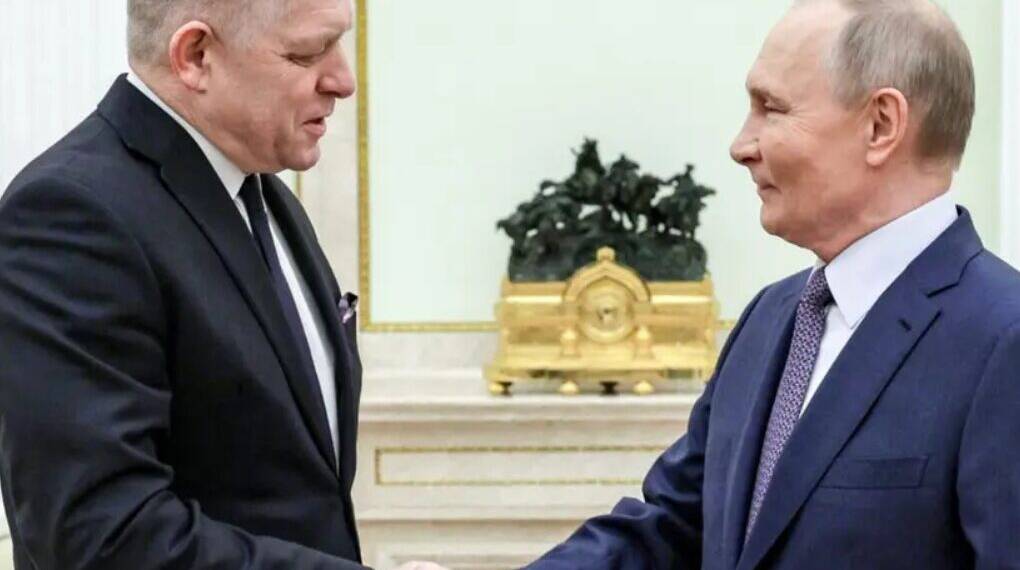More than three years into the war in Ukraine, the political landscape across Central Europe is showing signs of evolution and nuance. Initially unified in support of Kyiv, countries such as Slovakia and Hungary are increasingly reassessing their positions.
This emerging complexity reflects historical ties, economic dependencies, and shifting domestic priorities, raising questions about the durability of European unity and the future course of the conflict.
Historical Context: Central Europe and Russia
Central Europe’s relationship with Russia is layered and historically complex. Nations like Slovakia and Hungary share centuries-old cultural, economic, and political connections with Russia and, previously, the Soviet Union. These ties influence contemporary policymaking, especially when regional security is at stake.
For instance, Slovakia was part of Czechoslovakia, a Warsaw Pact member during the Cold War under Soviet influence, and Hungary experienced a Soviet invasion in 1956. While both countries have since integrated into Western institutions such as NATO and the EU, memories of Russian influence and dependence linger in political discourse.
This historical backdrop shapes how these nations perceive the Ukraine war—not just as a geopolitical conflict but also as a contest between East and West, past and present.
Slovakia’s Fico Voices Concerns Ahead of Putin-Trump Summit
Slovakia’s Prime Minister Robert Fico has recently emerged as a prominent voice questioning the current approach toward Ukraine. Ahead of the August 15 summit between Russian President Vladimir Putin and former U.S. President Donald Trump in Alaska, Fico warned that Ukraine “will have to pay dearly,” suggesting Kyiv is bearing the brunt of a larger geopolitical struggle.
Using an African proverb, Fico said: “No matter how the elephants’ negotiations turn out, the grass will suffer—in this case, Ukraine.” His metaphor signals concern that decisions made by powerful nations could harm Ukraine regardless of diplomatic outcomes.
Fico also maintained that Ukraine’s NATO membership is unlikely and emphasized that the conflict lacks a purely military solution. These statements contrast with Western governments’ support for Ukraine’s sovereignty and territorial integrity.
Kyiv’s Response and Regional Tensions
Ukraine’s Foreign Ministry responded swiftly, condemning Fico’s remarks as “openly offensive” and dismissive of the sacrifices made by millions of Ukrainians. Kyiv warned against using “unfriendly folklore allegories” that diminish the war’s human cost.
This diplomatic tension underscores growing differences within Central Europe, even among countries united by EU and NATO membership. While alliances have generally backed Kyiv politically and militarily, some governments are adopting more cautious or pragmatic stances.
Hungary and Economic Considerations
Hungary, under Prime Minister Viktor Orbán, has consistently taken a more measured position on the conflict, maintaining ties with Moscow despite EU membership. Economic factors—especially Hungary’s reliance on Russian energy supplies—play a significant role in shaping this approach.
Energy dependency on Russian natural gas and oil has complicated Budapest’s ability to fully endorse sanctions or military support for Ukraine. Inflation and rising energy costs across Central Europe are increasingly pressuring governments to balance economic stability with geopolitical commitments.
War fatigue among populations, along with concerns over inflation and supply chain disruptions, contribute to growing calls for dialogue and a negotiated settlement rather than prolonged conflict.
The Upcoming Putin-Trump Summit: Diplomatic Implications
The Alaska summit between Putin and Trump adds uncertainty. Although Ukraine is not officially a participant, reports indicate its inclusion cannot be ruled out. Kyiv and its allies remain wary that the conflict’s future could be negotiated by global powers without adequately addressing Ukrainian interests.
Fico’s comments reflect this unease, emphasizing that Ukraine may suffer regardless of the summit’s outcomes—an acknowledgement of the risks smaller countries face in high-stakes diplomacy dominated by great powers.
What next? Navigating Complex Realities
Central Europe now faces a delicate balancing act. Countries must reconcile historical ties and economic realities with alliance commitments and moral considerations. The initial phase of strong solidarity with Ukraine is giving way to more nuanced, pragmatic approaches.
Leaders like Fico articulate concerns about the sustainability of Western strategies and the long-term prospects for peace and stability. These perspectives highlight the challenge of maintaining cohesion in a region where domestic pressures and geopolitical calculations intersect.
As Central Europe reassesses its role in the Ukraine conflict, its decisions will significantly influence the broader European security environment. Navigating between the demands of alliance solidarity and national interests will shape not only Ukraine’s future but also the stability of the post-Cold War order.








